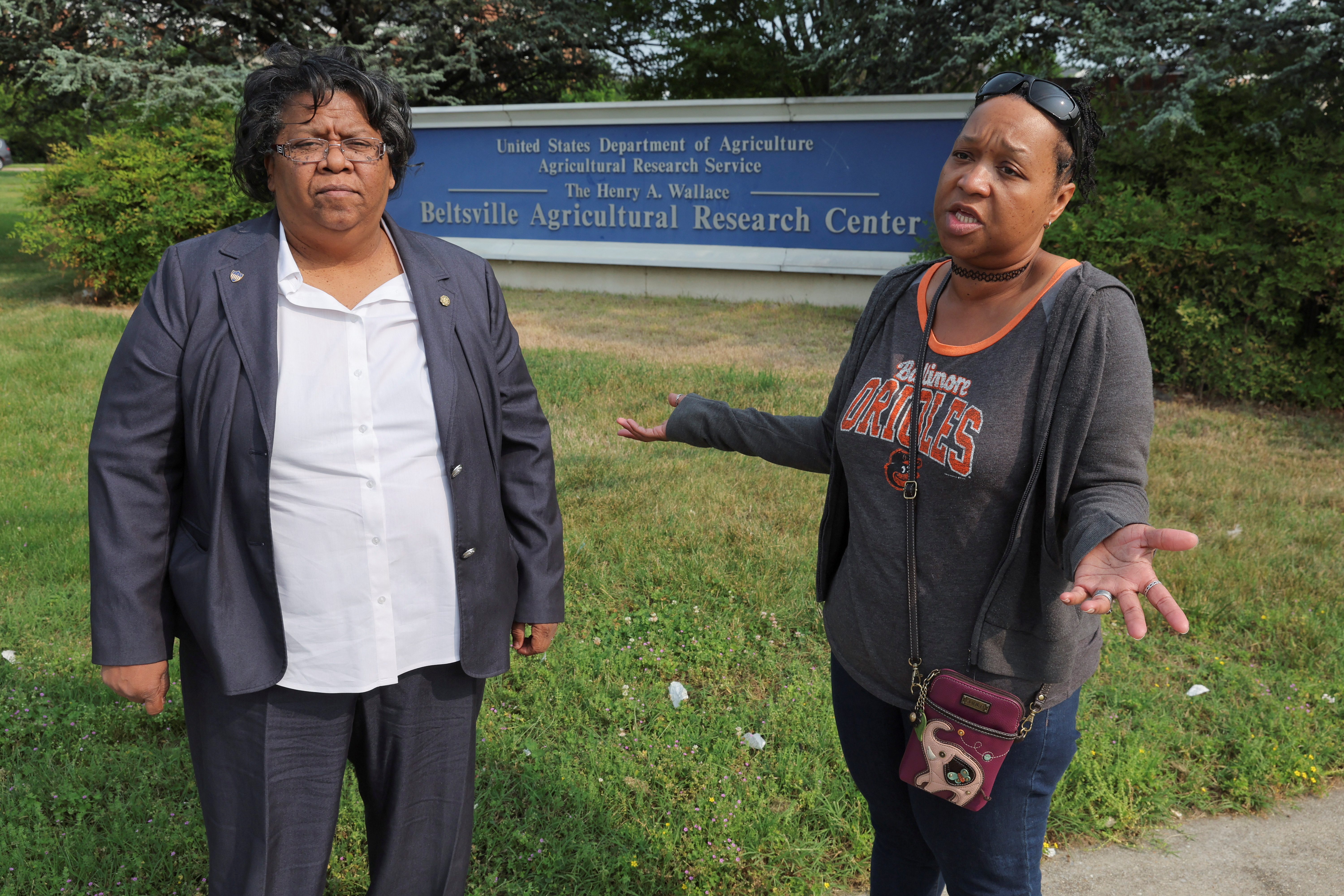US farm agency to close damaged research building after worker complaint

Claudette Joyner, president of the American Federation of Government Employees (AFGE) Local 3147 and a realty specialist at the U.S. Department of Agriculture’s (USDA) Beltsville Agricultural Research Center (BARC) and Ashaki "Teddi" Mitchell, vice-president of AFGE Local 3147 and a biological science laboratory technician at the... Purchase Licensing Rights
WASHINGTON, June 2 (Reuters) - The U.S. Department of Agriculture will temporarily close a damaged laboratory building at its flagship Maryland research site, a spokesperson told Reuters, shortly after employees filed a federal complaint alleging unsafe work conditions there.
Reuters exclusively reported on May 19 that employees at the Beltsville Agricultural Research Center (BARC), the country's largest farm research site, filed complaints with the Office of the Special Counsel, which protects federal whistleblowers, alleging that poor maintenance was undermining experiments and putting workers at risk.
The building experienced a major flood in December that damaged research, data, and equipment. Staff were asked to return to the building to begin the cleanup process as a cost-saving measure, even after independent testing found evidence of mold and asbestos, Reuters reported.
In a May 26 email to staff, viewed by Reuters, BARC's director Howard Zhang said only essential employees would have access to the damaged building after May 30 and that those employees would be provided with personal protective equipment.
The closure date was pushed to June 2 to allow staff to pack up, according to a spokesperson for the USDA's Agricultural Research Service, which oversees BARC.
The spokesperson said seven employees would have access to the building, down from 52 who have worked there on an as-needed basis since the flood.
USDA will replace damaged flooring, drywall, and ceiling tiles and improve ventilation and exhaust hood operations, the spokesperson said.
The Reuters investigation found that nearly all exhaust hoods in the building were out of code.
The building houses labs researching issues such as climate change and invasive pests.
In his email, Zhang said that offices and laboratories would be relocated by June 14 and that essential employees included those maintaining insect colonies and providing IT support.
Sign up here.
Reporting by Leah Douglas; Editing by Sharon Singleton
Our Standards: The Thomson Reuters Trust Principles.
